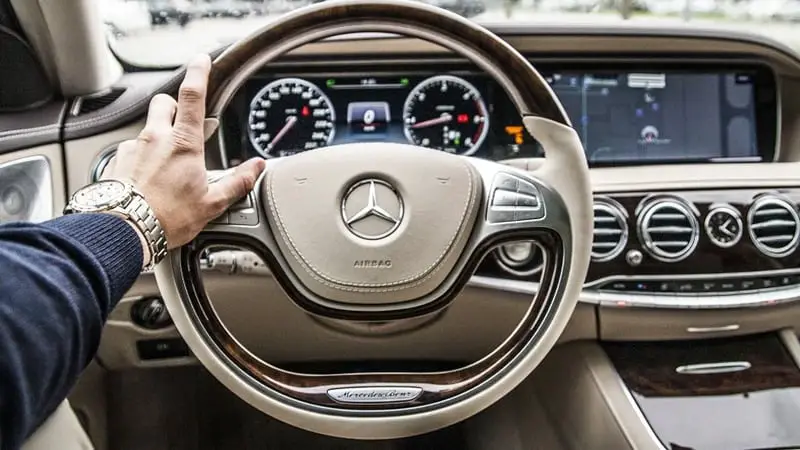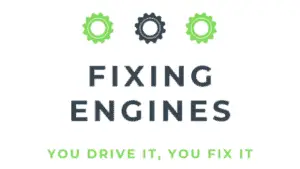There’s no denying that owning a vehicle comes with a lot of benefits. It provides you with the independence to move freely from one place to another. However, owning a vehicle also comes with several issues.
One of the most common and annoying issues that drivers encounter with their vehicles is the jerking of the steering wheel. This could occur any time, including when you’re trying to accelerate, and stop your car.
There are several factors that can cause the steering wheel jerking issue. However, the most common cause is the unbalanced and worn suspension. Other likely causes include faulty brake rotor, brake pad wear, engine issues, and faulty brake calipers.
Why does my car jerk when I step on the gas? What exactly makes my steering wheel jerk when I accelerate? What are the causes of jerky steering? As you read through the rest of this article, you’ll find answers to the burning questions above.
Why Does My Car Jerk When I Step On The Gas?

Car jerking is one of the most common issues that drivers experience when driving their vehicles. When this type of issue occurs, especially when you step on the gas pedal, the primary culprit is usually a result of inadequate fuel or air during the process of combustion.
However, apart from insufficient fuel or air in the combustion chamber, several other factors could contribute to why your car keeps jerking when you step on the gas pedal.
For instance, a dirty fuel injector is another common cause of car jerking. The fuel injector is the car component that’s responsible for spraying atomized fuel into the combustion chamber of your engine. However, over time, the injector can get clogged up by debris and dirt. If this happens, it could make your vehicle jerk when you step on the gas pedal.
A blocked catalytic control is another common cause of car jerking. Mostly, car jerking issues as a result of blocked catalytic control often surface when you accelerate your vehicle. Over time, a blockage can always occur when the air/fuel mixture in your car engine is too rich.
The fuel pump is engineered to transfer liquid from the fuel tank to the fuel injector. If the fuel pump is defective, it could also cause car jerking or stuttering, especially when you press the gas pedal to accelerate your vehicle.
The air filter is designed to prevent debris and dirt from entering the engine. But what exactly will happen when the air filter goes bad? In this case, the car will most likely start jerking anytime you try to accelerate the car. Here’s the thing; as dirt and debris enter the engine, they affect the performance of the engine, causing your vehicle to jerk.
I’m sure you know what the accelerator cable is designed to do? In case you don’t know, the cable is the component that’s responsible for connecting the gas pedal to the engine throttle plate. However, the accelerator cable can always wear out over time. If this happens, it could cause your vehicle to jerk, especially when you press the gas pedal.
A faulty spark plug can also make your car jerk when you press the gas pedal. Normally, the spark plug is designed to provide the spark, which is necessary to ignite the air/fuel mixture in the combination chamber. But when the device goes bad, the engine will fail to work properly. This explains why defective spark plugs could make your vehicle jerk.
Other factors that could contribute to why a car could jerk when the gas pedal is pressed include a defective transmission control module, build-up of moisture, and bad mass airflow sensor.
Why Does My Steering Wheel Jerk When I Accelerate?
Well, a couple of things could contribute to why your steering wheel jerks when you try to accelerate your car. The primary culprit, however, is loose bearings in the steering rack.
In case you don’t know, the rack and pinion gear set is designed to perform two different functions. The first one is to convert the rotational movement of the steering wheel to linear motion. Its other function is to provide drivers with near reduction.
The bearings in the steering rack are usually placed in between the shaft and the column. The devices are the ones responsible for allowing the shaft to rotate freely, making the wheel work well. That said, if the steering rack bearing is loose or missing, this could make the steering wheel misbehave, occasionally providing a jerking movement.
Another thing that could make your steering wheel jerk when accelerating your vehicle is the incorrect alignment of your wheels. Misaligned car wheels can also make your tires wear unevenly and quickly. Unfortunately, if this happens, it could also make the steering wheel jerk unexpectedly as you accelerate your car.
That’s not all; another common factor that could make your steering wheel jerk during acceleration is a worn-out driveshaft. The driveshaft is designed to transmit torque to the wheels. However, if the driveshaft wears out, it could make the steering wheel jerk, especially when you accelerate the car. That’s so because the wheels aren’t getting enough power, necessary to keep them running properly.
What Causes Jerky Steering?

As earlier mentioned, jerky steering can always happen at any time, including when braking or accelerating your vehicle. In the previous section of this post, I mentioned that loose bearing in your vehicle’s steering rack is the main cause of jerky steering. This issue mostly occurs when you try accelerating your vehicle.
Other common causes of jerky steering, as previously stated, include the incorrect alignment of the wheels and worn-out driveshaft. All of these mostly occur when you try to accelerate your vehicle.
Your steering wheel can also jerk when you try to stop your car. A common cause of this issue is faulty brake calipers. Another factor that could make your steering wheel jerk is the worn-out brake pads. That’s not all; if the brake rotors are damaged, it could also make the steering wheel jerk when you try to slow down and stop your vehicle.

